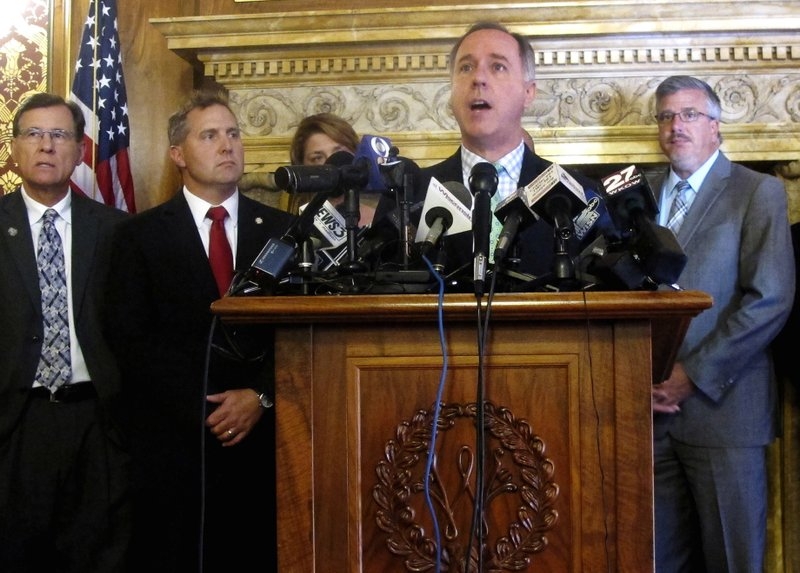Politics
Wisconsin Assembly Speaker Vos looks to crack down on those who skip job interviews

MADISON, Wis. (AP) — Wisconsin should get tougher on unemployed people who apply for jobs to meet work search requirements but then skip out on the interview, Assembly Speaker Robin Vos said Wednesday as he advocated for eliminating a $300 enhanced payment for the unemployed.
Business leaders at a roundtable discussion organized by Wisconsin Manufacturers and Commerce told Vos and fellow Republican Senate Majority Leader Devin LeMahieu that the worker shortage problem has reached a breaking point.
“This has gone from an annoyance pre-pandemic to a crisis,” said Scott Mayer, chairman of staffing agency QPS Employment. He said his company has over 5,000 job openings in Wisconsin and the supply chain is in danger of breaking down because there are not enough available workers.
“This is a very, very serious situation,” Mayer said. “It is a real crisis situation. If we don’t do something, and quickly, its not going to be like flicking a light switch to get the supply chain back.”
Vos, the owner of a food packaging business, said during the pandemic that he was fearful he would go bankrupt. Vos said he’s still battling worker shortages now and is offering gift cards to employees who show up to work on time five days a week.
Vos, in a back and forth with a business owner who described job applicants skipping out on interviews, questioned whether Wisconsin should do more to combat that.
“It seems like in Wisconsin we don’t do a very good job to report a no-show for an interview and doing something about it,” Vos said.
There is no legal requirement for employers to report interview no-shows, according to the state Department of Workforce Development. However, an employer can report when someone refuses a job, which can be used by the state to deny unemployment benefits.
“I would love to work with the administration and the department to figure out a more rigorous way to say, ‘Hey, if you schedule an interview you need to show up or you lose your unemployment,’” Vos said after the event. “That’s not the current process.”
Republican legislative leaders, along with the state chamber of commerce, trade groups and local economic development groups, are advocating for the state Legislature to repeal a $300 unemployment supplement and other enhancement programs enacted during the coronavirus pandemic.
Wisconsin Republicans last month reinstated a work search requirement for the unemployed, a move designed to get more people back into the workforce. The Assembly was scheduled to vote next week on a bill ending the $300 payment and other federal enhancement programs.
Evers, a Democrat, is likely to veto the measure. He voiced support for the $300 payment on Tuesday, saying those who advocate abolishing it don’t have any evidence that it’s behind the worker shortage problem.
“It’s an issue I have seen no data on — none whatsoever,” Evers said. “In addition, we had trouble finding people to come to work before the pandemic, during the pandemic, and after the pandemic so I think this is an issue around making sure we have the best quality of life in the state of Wisconsin so we actually encourage people to move here — I think those are things we need to take a look at. But I am concerned we are seeking a solution to a problem that may not exist.”
Business leaders said removing the $300 supplement is a start, but that the worker shortage issue is more complex. Labor experts agree that several factors feed into the shortage, which existed before the pandemic but that has come into sharper focus since.
Some unemployed people have been reluctant to return to work because they fear catching the virus. Others have found new occupations. And many women, especially working mothers, have left the workforce to care for their children.
Business leaders on Wednesday advocated for tax law changes and cited worker concerns about child care given unusual school schedules this past year as fueling the worker shortage.
Steve Loehr, vice president of Kwik Trip, said the company was looking to hire 3,000 people in Wisconsin this year. One move Kwik Trip made to retain workers was to open a day care center at its packaging facility in La Crosse, he said.

